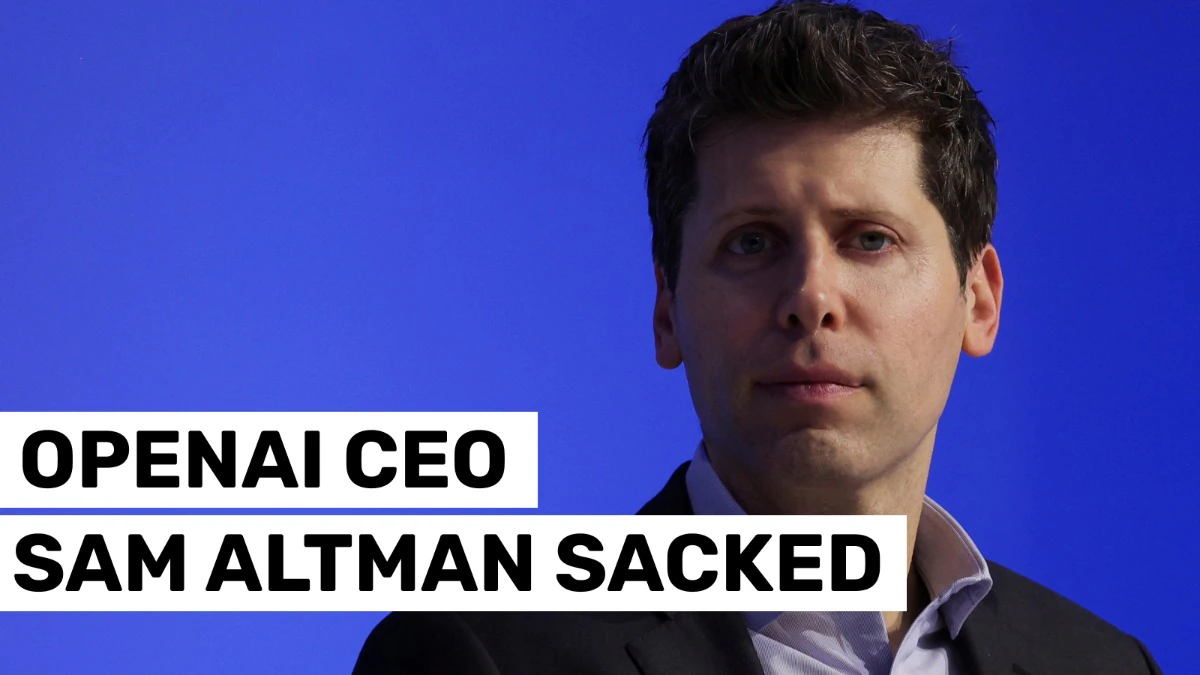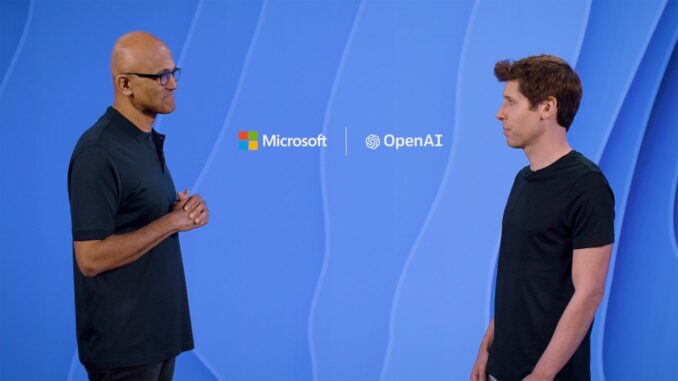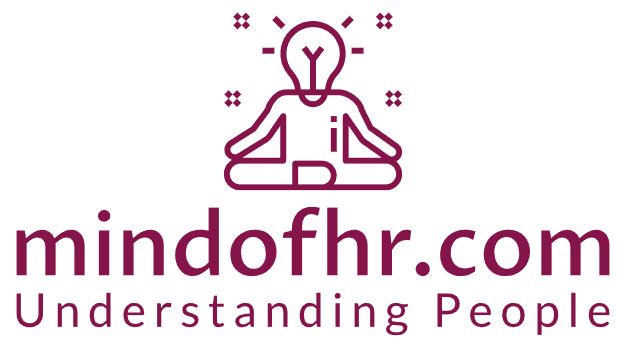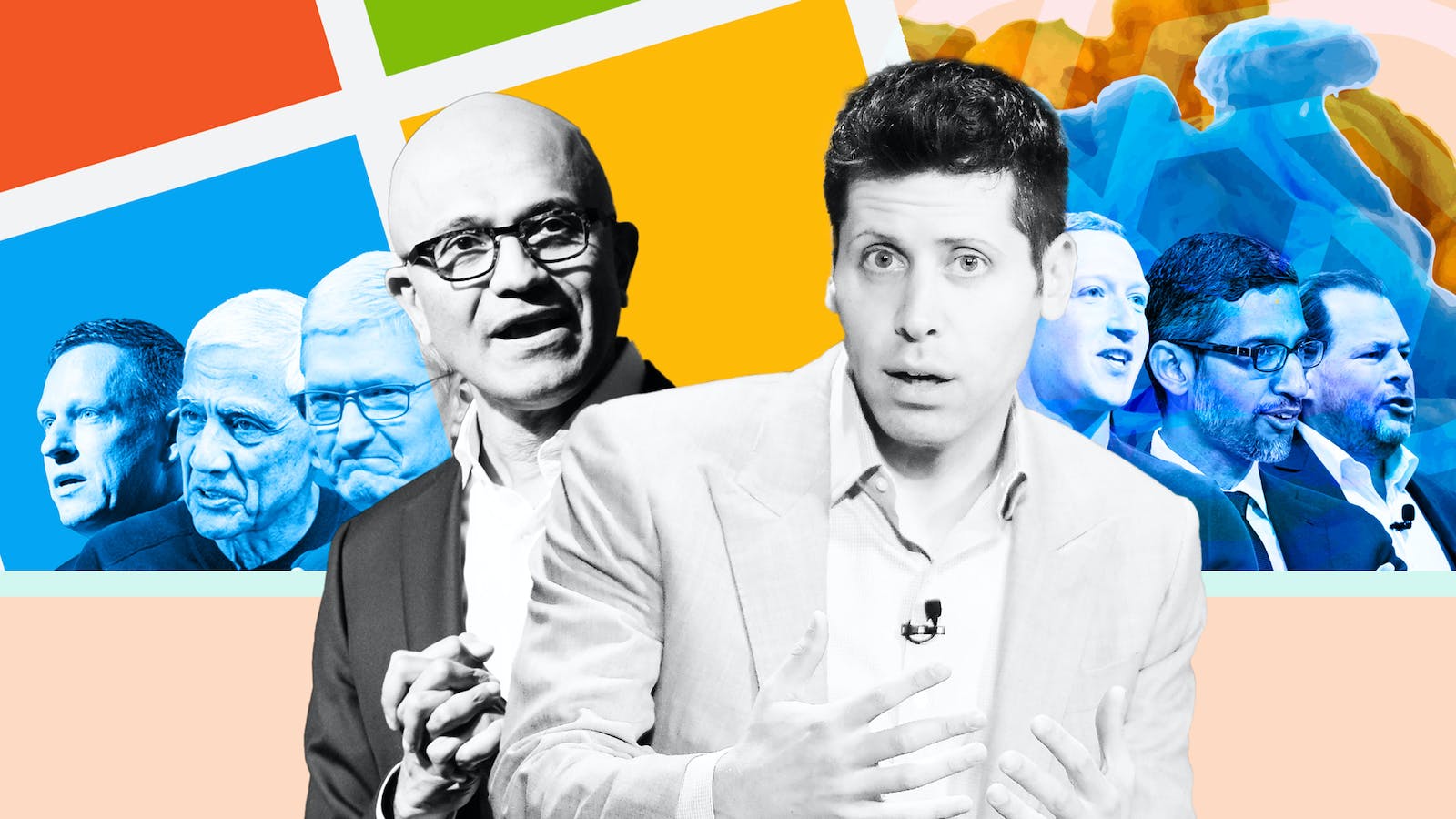In a seismic move that resonated through the tech world, Sam Altman, the former CEO of OpenAI, has traded his leadership role to join Microsoft’s advanced AI research team. This strategic departure has ignited a fervor of speculation, with industry experts questioning the repercussions for OpenAI’s talent pool, its leadership dynamics, and, crucially, its potential to secure substantial funding.

The narrative, however, is not as straightforward as a victory for Satya Nadella and Microsoft. The departure of key figures from OpenAI to Microsoft’s AI enclave raises eyebrows, with critics suggesting that cannibalizing one’s most substantial investment rarely leads to optimal outcomes. The timing is conspicuous, occurring just a year after the launch of ChatGPT and the consolidation of Generative A.I., a consolidation that is already reshaping the landscape.
The crux of the matter lies in the fate of independent startups specializing in Generative A.I. Can they truly thrive on their own, or does the gravitational pull of BigTech giants render genuine innovation unattainable?

Consider Microsoft’s $13 billion investment in GitHub. While hailed as a strategic acquisition, the aftermath of integrating GitHub into Microsoft’s ecosystem left some aspects diluted, prompting concerns about the fate of OpenAI following a similar trajectory.
As the tech giants absorb the capabilities of Large Language Models (LLMs), GPTs, and copilots, questions linger: Does the world truly benefit from this concentration of power in the hands of a few? Silicon Valley’s venture capitalists, ensconced in their towers, are accused of prioritizing profit over innovation, perpetuating a cycle that stifles the organic growth of Generative A.I.
The trend of Silicon Valley devouring promising AI startups before they reach their zenith is undeniable. The premature consolidation of innovative ventures, such as Inflection, Anthropic, and Character.AI, is creating an ecosystem where the giants consume the upstarts before they can spread their wings.
Microsoft’s invitation to Sam Altman and his cohort is akin to sacrificing a long-term investment for short-term gains. This strategic maneuver rarely concludes positively for major corporations, and Microsoft’s choice to divide OpenAI into two entities may decelerate progress in Large Language Models (LLMs) and research.
Satya Nadella’s negotiation prowess, offering deals that Altman and Greg Brackman couldn’t refuse, might bear consequences that lack a high likelihood of success. Breaking up a startup after a substantial $13 billion investment is a decision that could reverberate negatively for Microsoft in the years to come.
By inviting Sam Altman to lead an internal advanced R&D Lab, Microsoft may inadvertently contribute to the downfall of OpenAI. The premature consolidation of Generative A.I. startups under the pressure of BigTech could impede the overall advancement of LLMs, potentially allowing other global players, like China, to catch up.
This situation underscores the consequences of a system lacking free-market capitalism and anti-competitive rules. Silicon Valley, accused of misaligning incentives for A.I. to organically flourish in the 2020s, now faces the fallout from these decisions, and the implications for the future of artificial intelligence innovation are profound.









